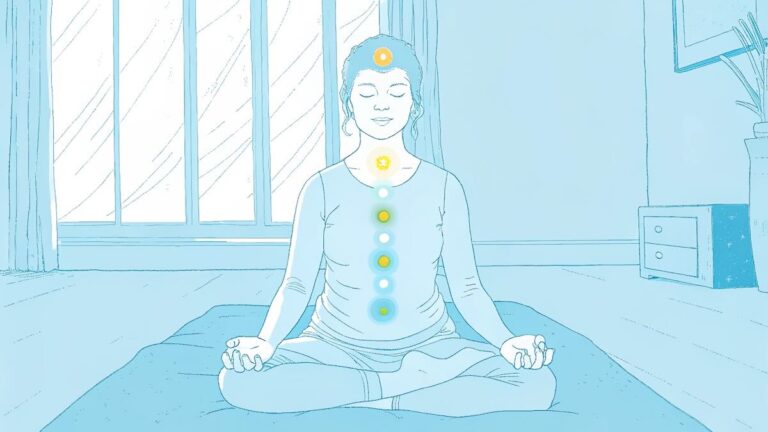The Power of Sleep: How It Changes Your Body, Mind, and Mood
In our chase for better health, we often focus on diets, supplements, and workout plans, but we tend to overlook one of the simplest and most effective healers: sleep. Sleep isn’t just a break from the day; it’s an important process that restores our bodies, clears our minds, and balances our emotions. Research shows that getting enough good-quality sleep is just as important for our health as eating well and exercising.
According to experts from the CDC and Harvard Medical School, not getting enough sleep can lead to various health problems, including mood swings, a weakened immune system, weight gain, and trouble thinking clearly. In this article, we’ll look at how sleep plays a key role in our well-being—helping reduce stress, manage our metabolism, boost our thinking skills, and share simple ways to get better sleep naturally.
Less Stress and Better Mood: A Reset for Your Emotions
Sleep is crucial for keeping our emotions in check. It gives our brain and body a chance to reset after a stressful day. Research from the American Psychological Association shows that getting enough sleep lowers stress hormones like cortisol, which helps us react better to stress. Without enough sleep, we can feel more anxious, irritable, and moody.
When we’re well-rested, our brains manage emotions more effectively, which helps us stay balanced. The National Sleep Foundation notes that people who sleep 7–9 hours a night feel more stable and experience less depression. A good night’s sleep helps filter out negative thoughts and boosts positive ones, making it one of the easiest ways to feel better mentally.

Better Metabolism: How Sleep Affects Weight and Energy
We often underestimate how sleep affects our metabolism, but research shows it’s important. Not getting enough sleep messes with the hormones that control hunger and energy. According to the National Institutes of Health, not sleeping enough lowers leptin (the hormone that tells us we’re full) and raises ghrelin (the one that makes us hungry), leading to cravings for unhealthy foods.
Lack of sleep can also make it tough for our bodies to manage insulin, which can lead to weight gain and a higher risk of type 2 diabetes. Getting enough rest can help keep our metabolism in check, balance our hunger hormones, and support healthy weight. In short, more sleep means better energy, healthier cravings, and a balanced metabolism.
Sharper Thinking: Clearing the Fog
When it comes to memory, focus, and decision-making, sleep is key. The brain needs sleep to sort through memories, take in new information, and clear out toxins. The Sleep Foundation says that during deep sleep, the brain strengthens connections involved in learning, while REM sleep helps with emotional memory and creativity.
On the flip side, not getting enough sleep can slow down our thinking, lead to more mistakes, and impair our attention. The CDC states that adults who sleep less than seven hours a night are likely to face memory issues, reduced alertness, and trouble concentrating. Making sleep a priority can help us think clearly and maintain our memory as we age.
Tips for Better Sleep: Small Changes, Big Impact
Improving your sleep doesn’t require fancy gadgets or strict routines—simple daily habits can make a big difference. The CDC and National Sleep Foundation suggest setting a regular sleep schedule by going to bed and waking up at the same time each day. Avoiding screens and bright lights at least an hour before bed is important since blue light can interfere with our sleep hormone.
Creating a calm bedroom is also helpful. A cool, dark, and quiet space promotes better sleep. The Mayo Clinic recommends steering clear of large meals, caffeine, and alcohol before bed, as these can disrupt sleep. Gentle evening activities like reading or stretching can signal to your brain that it’s time to wind down. Together, these small changes can lead to a more restful routine.

Conclusion: The Foundation of Good Health
From managing stress and metabolism to keeping our minds sharp and emotions balanced, good sleep is crucial for overall well-being. While exercise and nutrition often get more attention, sleep plays a silent yet powerful role in how we feel and function.
This article shows that sleep has many benefits—reducing stress, supporting metabolism, boosting cognitive function, and offering simple strategies to improve our sleep. When we see sleep as an important part of self-care, it becomes one of our best tools for staying healthy.
sleep wellness, sleep and metabolism, stress relief sleep, cognitive function and sleep, sleep hygiene tips, sleep strategies, benefits of sleep, emotional health sleep, improve sleep, sleep habits
✨ Want to wake up feeling your best? Subscribe to our newsletter for helpful wellness tips, sleep guides, and mindful living advice, all designed to help you thrive naturally.







